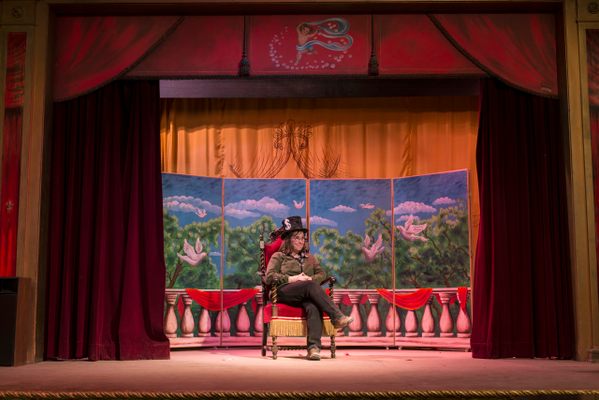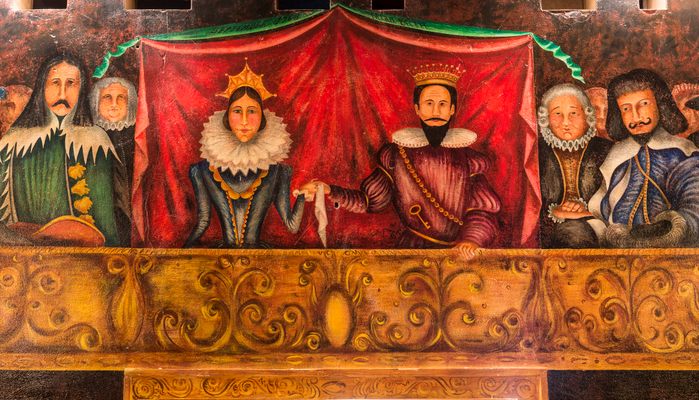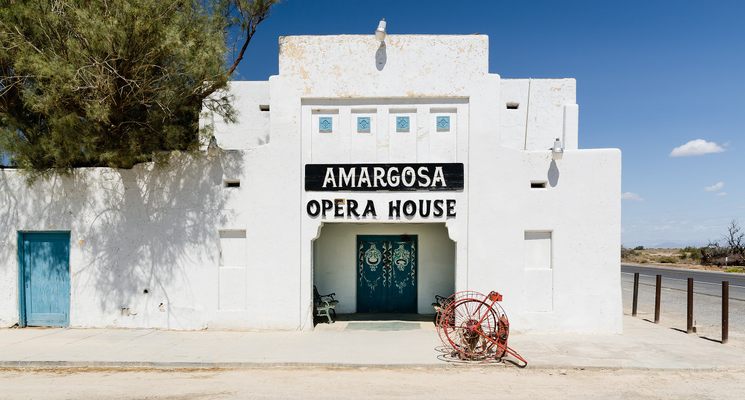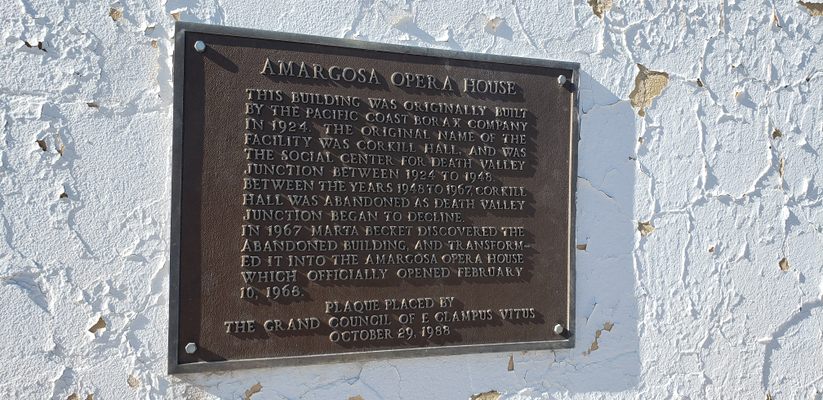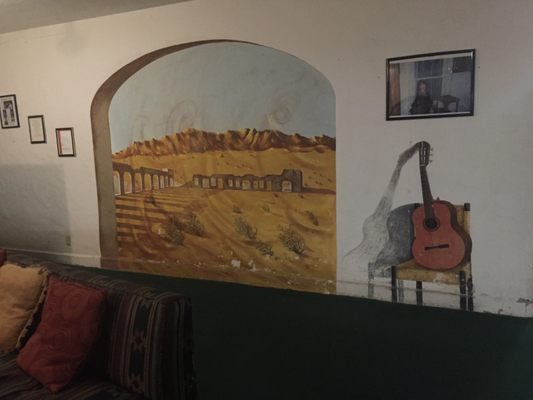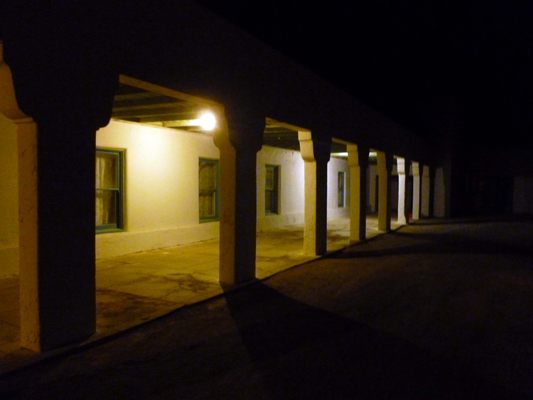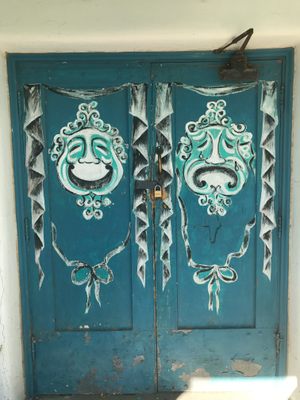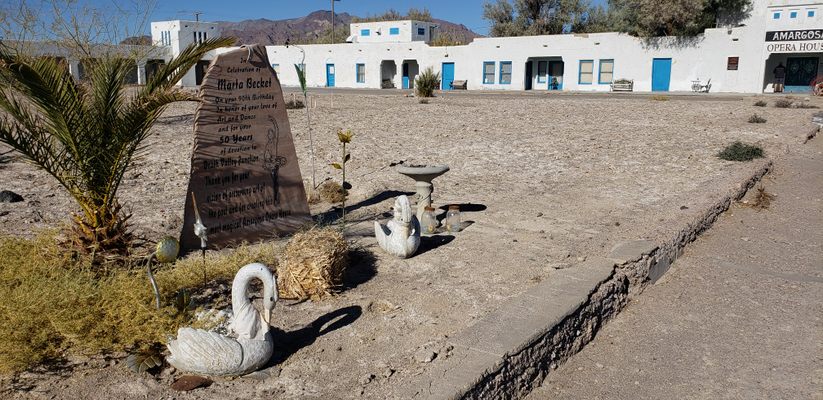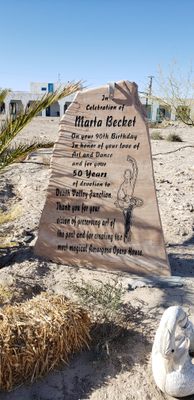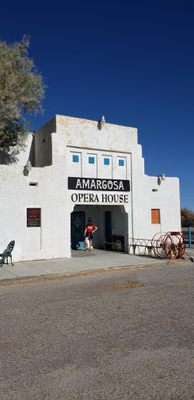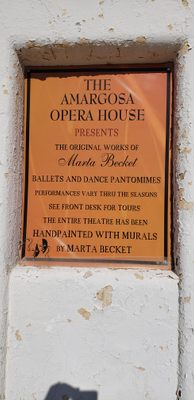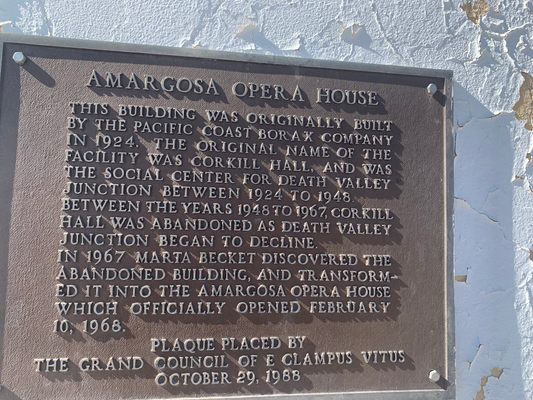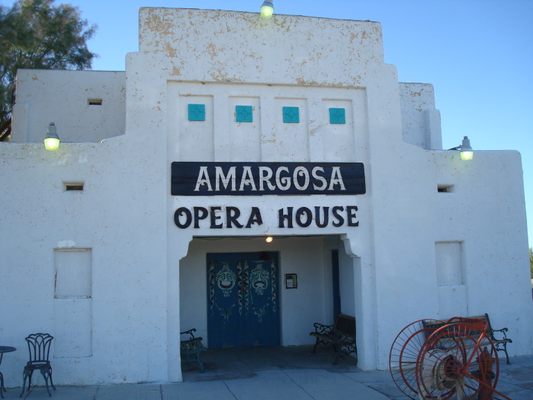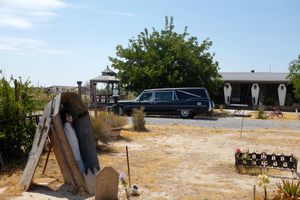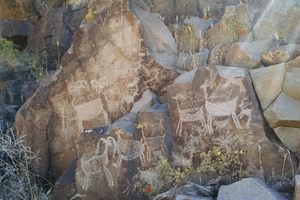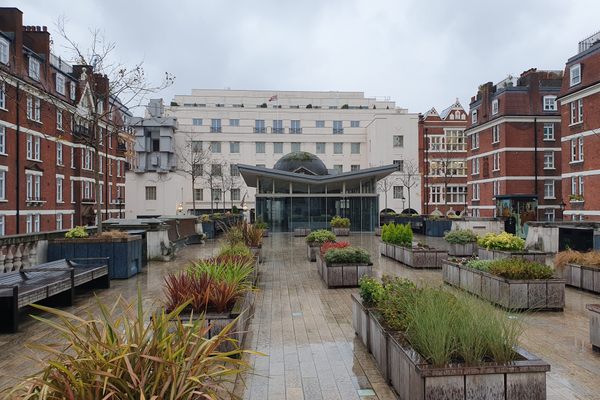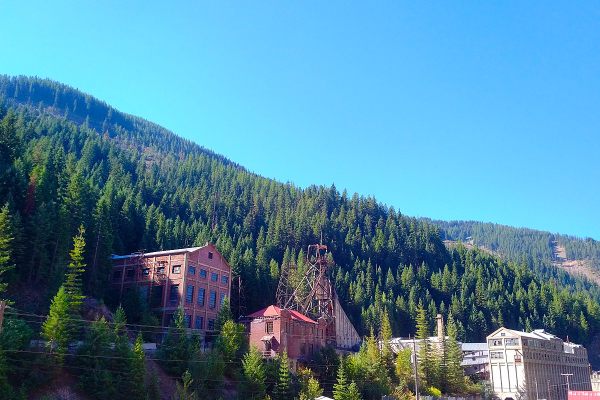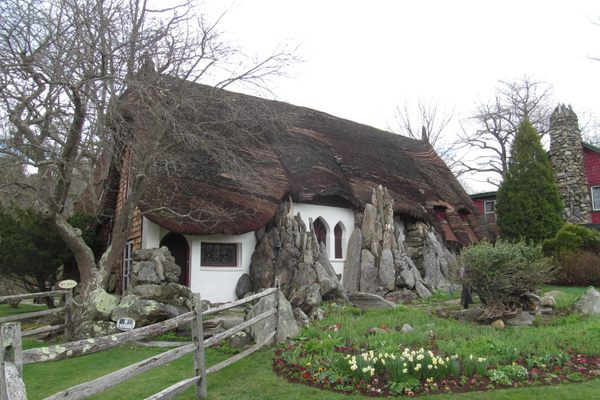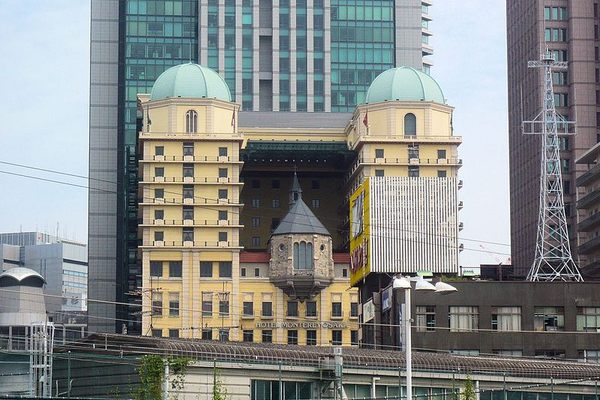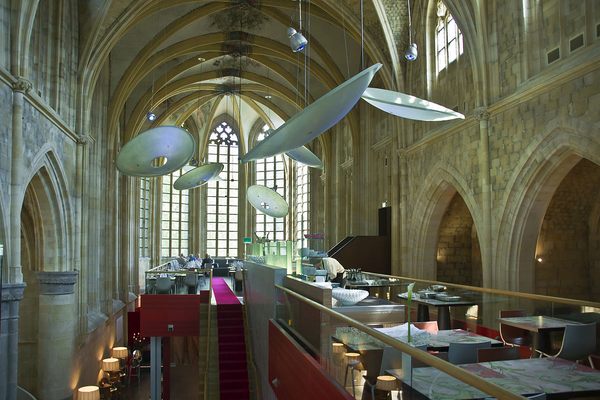About
In the middle of Death Valley—one of the harshest and most extreme environments on earth—stands one of the most unusual hotels in America, the Amargosa Opera House and Hotel.
The Amargosa, whose name stems from the Spanish word for “bitter” (amargo), is located in a town called Death Valley Junction; population: less than 20, restaurants: 0, gas stations: 0, opera house: 1.
Suffice it to say, these are odd municipal statistics. The hotel is operating, and the shows continue at the opera house: Resident Marta Becket staged dance and mime shows there since the late 1960s up until her death in February 2017. But beyond these maintained areas, Death Valley Junction is in a state of disrepair.
Originally part of the Pacific Coast Borax company town, the Amargosa served as the miners' recreation hall, where church services, movies, dances, funerals, and town meetings all took place starting in 1923. By 1925, the mining operation moved, and the town was left to be turned back into sand by the desert.
But this was not to be, for in the spring of 1967, Marta Becket and her husband found themselves stuck with a flat tire near the town of Amargosa. While her husband attended to the tire, Marta wandered through the town. She soon found the old building and, drawn to it, noticed a hole in a door, where she could see inside. She found herself "peering into the old theater that would become the Amargosa Opera House. It was abandoned... and had been for some time."
"Peering through the tiny hole, I had the distinct feeling that I was looking at the other half of myself. The building seemed to be saying, 'Take me... do something with me... I offer you life.'"
Marta promptly settled down there and, having been a dancer and performer her whole life, began performing shows in the opera house. The audiences were modest, the first one consisting of twelve adults and children, but Marta had a plan.
In July of 1968, Marta began a massive project of painting a 16th-century royal audience on the walls, each with a different face. King, queen, royalty, nobility, bullfighters, monks, nuns, American Indians, ladies of the night—all attend the show. The audiences even have complex stories such as the "group of royal children tended by a governess who is being courted by a gentleman seated in the balcony above." It took Marta four years to complete the murals... then she started on the ceilings.
Eventually, Marta was able to buy the opera house (she had been renting it for some 20 years), and it acquired more seats and a grand piano. Today, should you be in Amargosa, you can catch a show. These days, they're performed by artists who, inspired by Marta's journey, come to put on limited runs of shows there.
Related Tags
Community Contributors
Published
February 13, 2010
